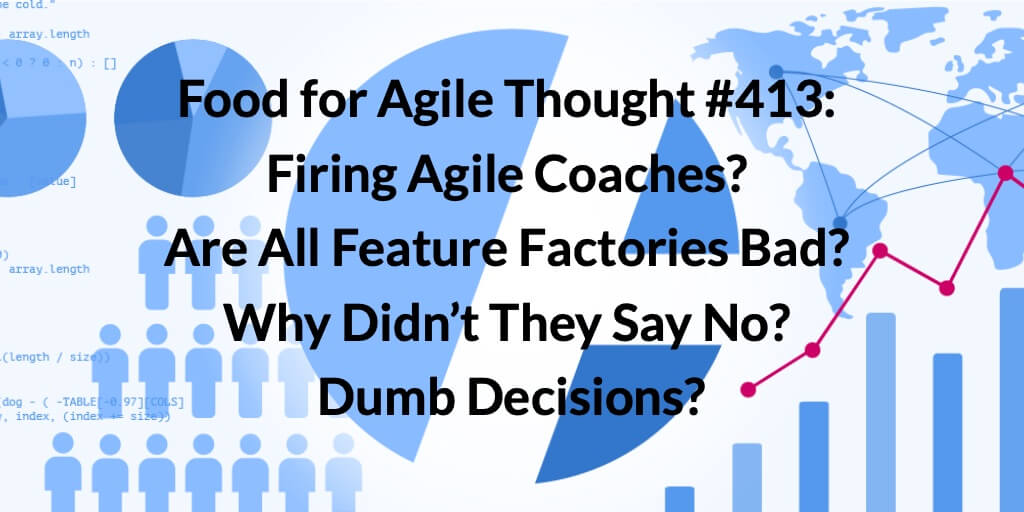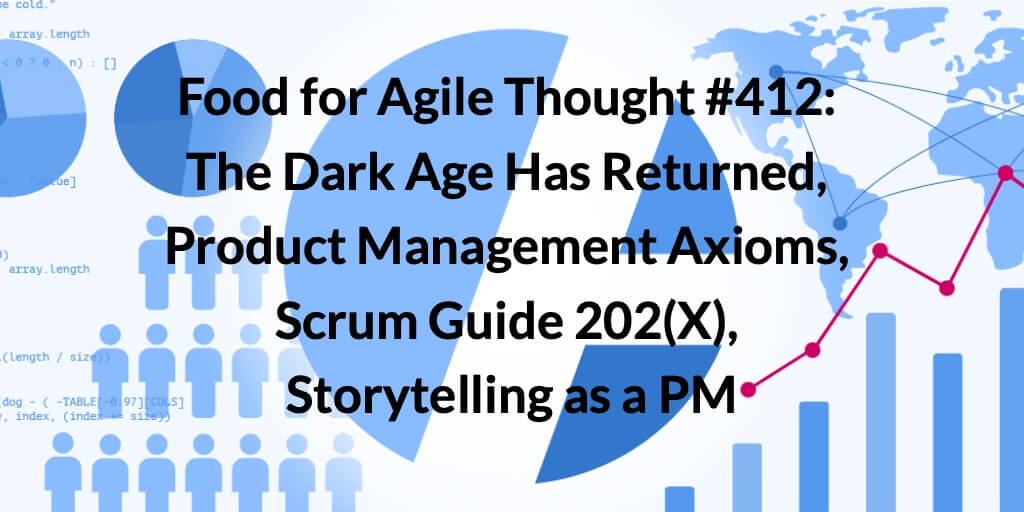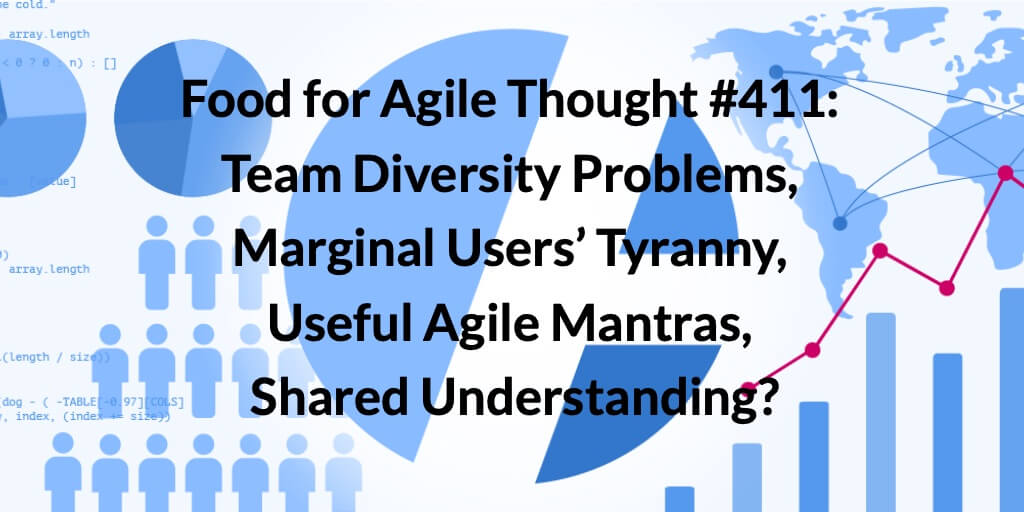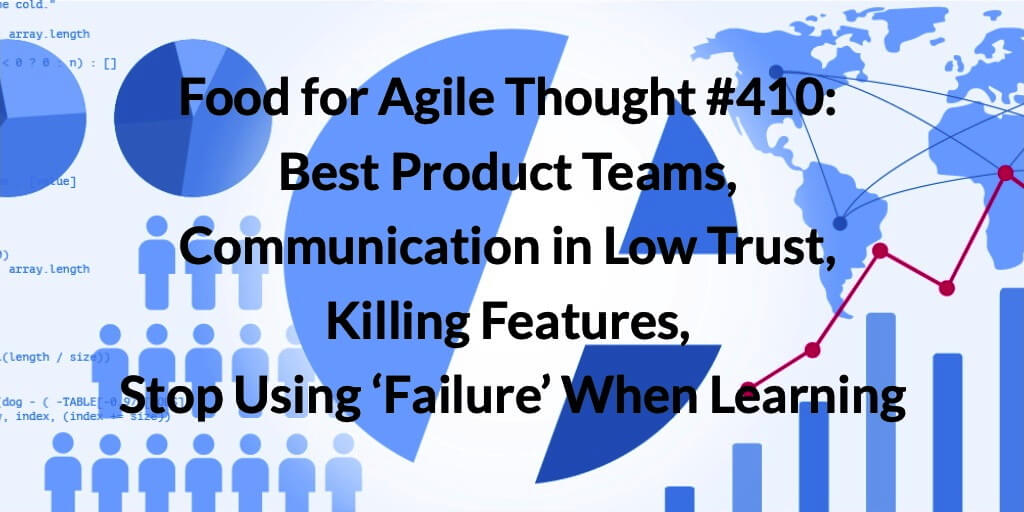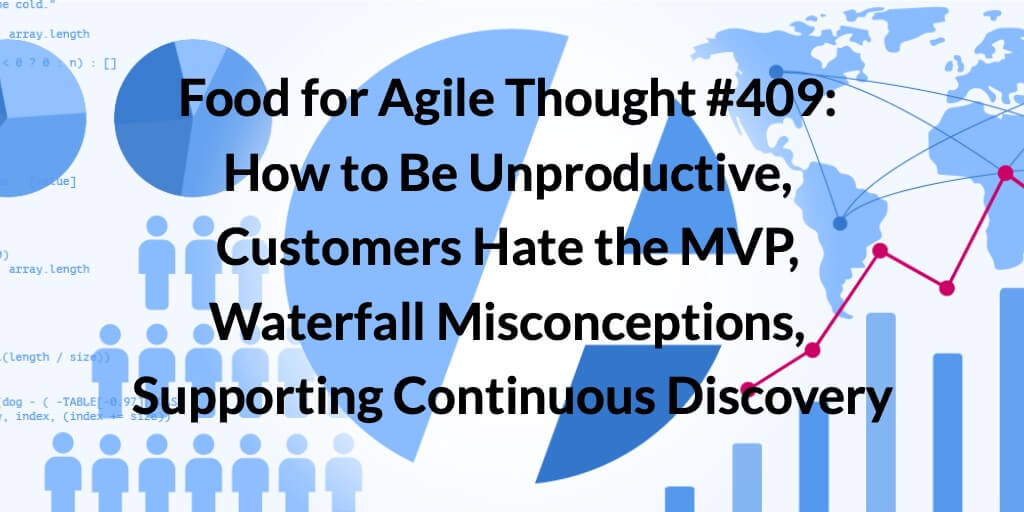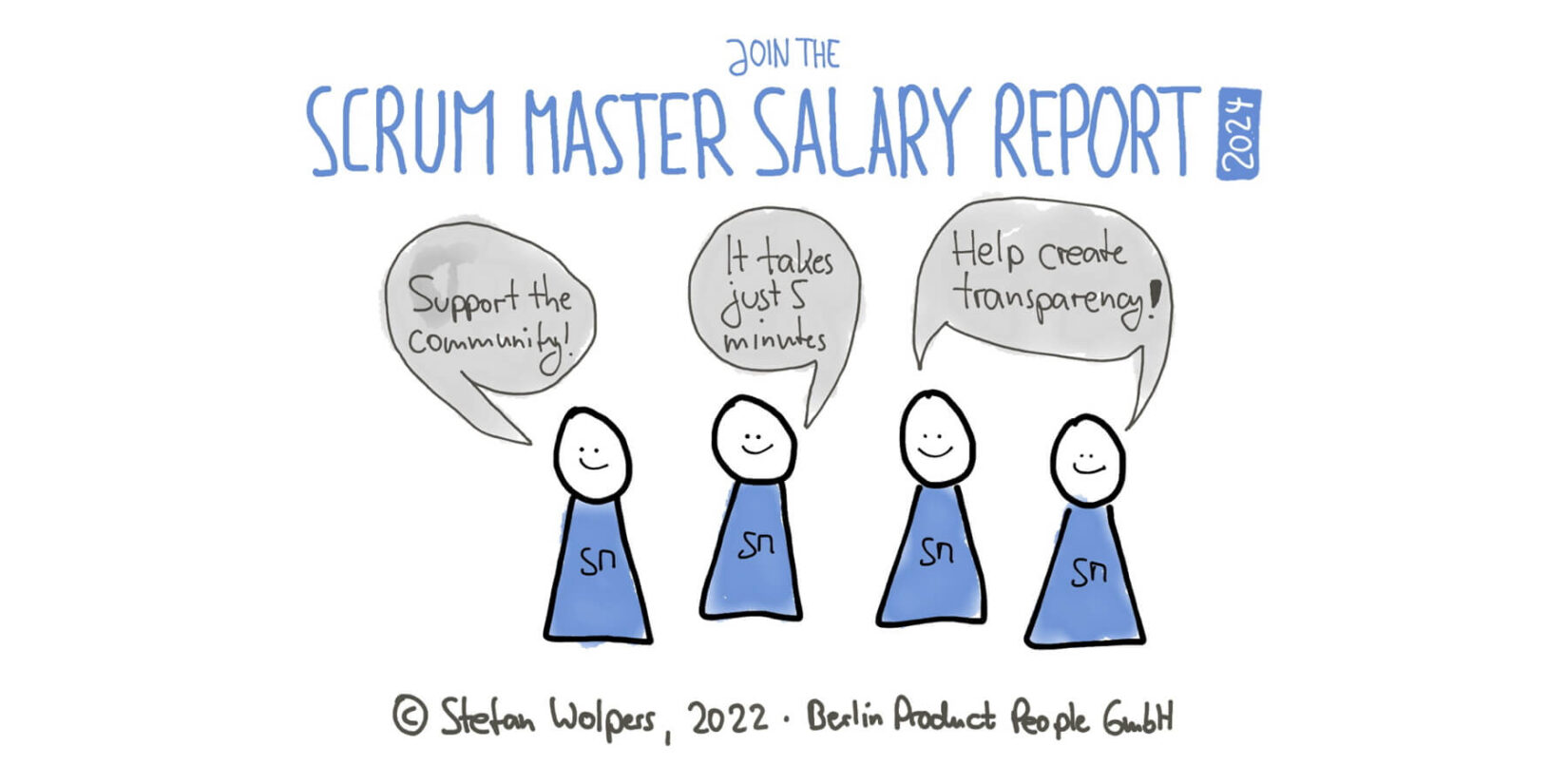TL; DR: Firing Agile Coaches? — Food for Agile Thought #413
Welcome to the 413th edition of the Food for Agile Thought newsletter, shared with 49,263 peers. This week, Anthony Mersino reflects on firing agile coaches due to financial constraints and urges a focus on continuous improvement to prove value. David Rodenas discusses the misguided adoption of “Agile” due to a lack of understanding, and Marty Cagan emphasizes holistic organizational involvement in digital transformations. Joost Minnaar advocates for subtraction over addition in workplace transformation, promoting identifying and eliminating unnecessary tasks for more effective change.
Then, Sam Gimbel addresses the general disdain towards ‘feature factories,’ advocating for a more nuanced approach and customer-centric development. John Cutler delves into the tendency of teams to overcommit, attributing it to a culture of affirmative bias and advocating for realistic engagement in work commitments. Moreover, Kilian Butler narrates Papercup’s experience in machine learning product development, offering practical insights to help others navigate this challenging yet rewarding domain.
Lastly, Jimmy Janlén explores blending Scrum and Kanban for optimized workflows, providing a roadmap for an informed choice or fusion of these agile frameworks. Oscar Ibars discusses the art of saying ‘no’ in Product Management to maintain realistic project scopes. Paweł Huryn delves into Product-Led Growth strategies, emphasizing customer-centric approaches for product growth. Also, David Perell shares 50 insightful ideas focusing on critical thinking, human behavior understanding, and system optimization, introducing principles like Inversion, Doublespeak, and the Theory of Constraints.
